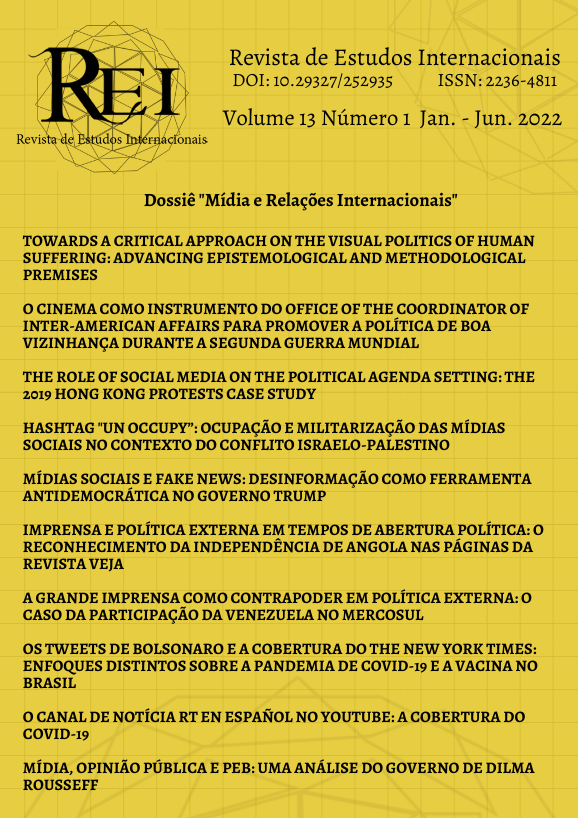TOWARDS A CRITICAL APPROACH OF THE VISUAL POLITICS OF HUMAN SUFFERING: ADVANCING EPISTEMOLOGICAL AND METHODOLOGICAL PREMISES
Palavras-chave:
Visual politics, Human suffering, Post-positivism, Praxeology, Power of mediationResumo
This article brings to light a subject of supreme importance to the International Relations (IR) academic community on critical research. Much like any IR critical approach, an analysis of the visual politics of human suffering through epistemological and methodological premises is defined by post-positivist and praxeological accounts. The question of relevance of this article for the IR critical theory is, therefore, the framing of a phronetic perspective provided by post-positivism and the logic of enactment provided by praxeology as integral parts of a reflexive reading over visual politics of suffering and its constitutive power of mediation. By establishing these epistemological and methodological premises, it contributes to critical evaluations about mediation and existing structures of power. For this, it considers an emancipatory commitment, so the naturalness notion of the international structure and the traditional relations of dominance and struggle for power would be challenged. In bonding different IR approaches, such as constructivist, post-structuralist, feminists, and others alike together into the same epistemological and methodological accounts, IR critical theory becomes the main counter-argument provided by this article in attempting to resist rational positions that determine whose suffering human beings see, and whose suffering tends to remain unseen to them.


